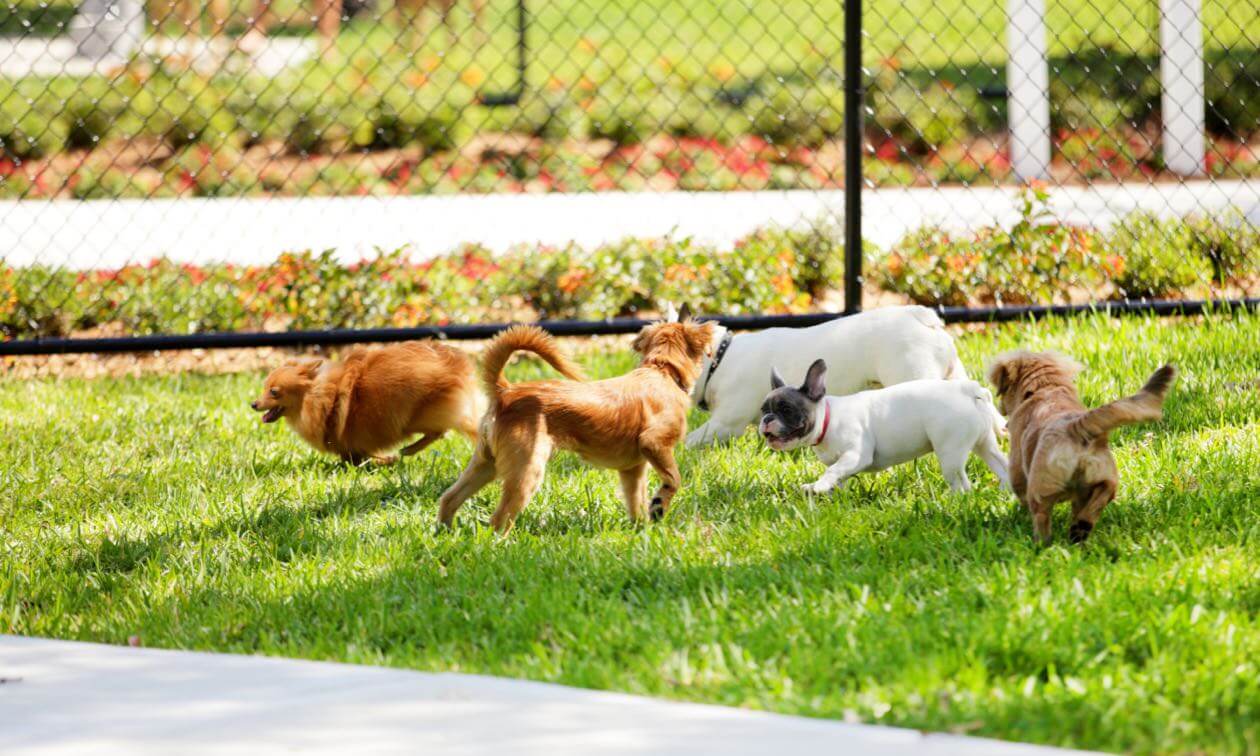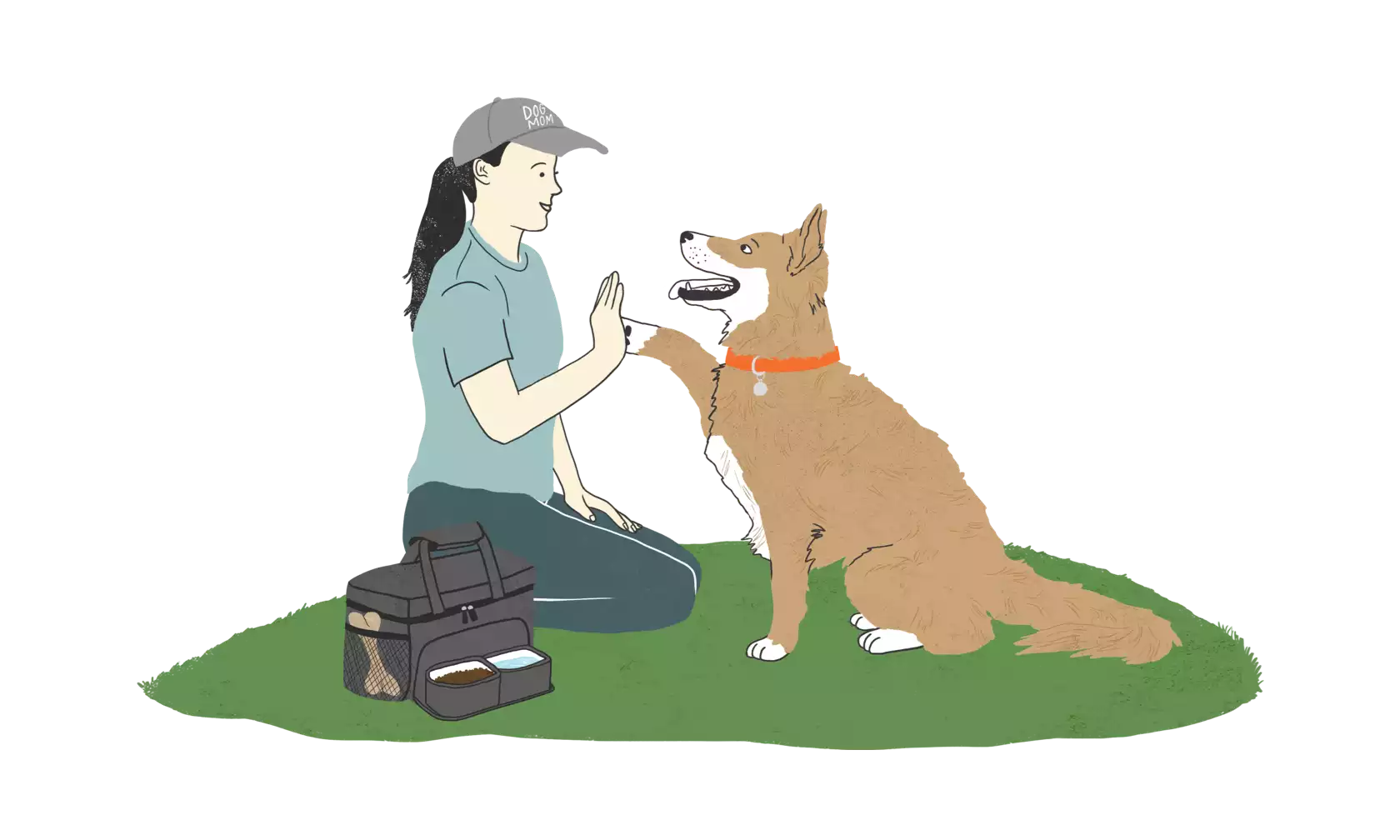Taking your dog to the dog park can be a fun adventure or a downright disaster. There's a reason that dog parks are a controversial topic among dog trainers and veterinarians. Dog parks can be a great way to exercise your dog, maintain socialization, and meet other dog owners.
But there's a very real risk of disease transmission, injury, and negative social experiences for dogs. Think about your dog and their personality and needs before you head to the dog park. Keep the following basic dog park etiquette tips in mind to ensure you and your dog have a great time and stay safe.
Stay Current on Vaccinations and Preventatives
You don't want your dog getting sick or bringing home nasty parasites from the dog park (and you certainly don't want to be the one spreading those things to other dogs that play there). With the high number of visiting dogs, and wildlife tracking through these outdoor spaces, there is a higher risk for illness transmission, fleas, and ticks.
Make sure your dog is up to date on their vaccines. Speak with your veterinarian about which vaccines they need to have in your area when entering a dog park. Consider regular fecal exams and deworming to reduce the risk of intestinal parasites. To help mitigate the risk of illnesses like giardia, bring your own water and portable dog water bowl, and don't share it with other dogs.
Know Your Dog
Before heading off to the dog park, consider whether your dog has the right temperament for off-leash play with unknown dogs and whether they enjoy it. If your dog gets a little cranky with other dogs sniffing or pestering them, is frightened of other dogs, or simply doesn't want to engage with the other dogs at the park, it's okay to skip the dog park altogether. Instead, set up a play date with a familiar dog so they can interact one-on-one in a less stimulating environment.
Some breeds or breed mixes have predispositions to herd other dogs or "police" playing. In these cases, if your dog has good listening skills and you are carefully managing their interactions, you'll likely be okay. However, if they don't respond to those obedience cues, wait to go to the dog park until you've practiced and trust they will listen when distracted. You should not visit the dog park if your dog exhibits predatory chasing or aggressive behaviors such as guarding toys. You may want to consider having a dog trainer (or your veterinarian) assess your dog's temperament and explain what body language a dog shows when expressing aggressive behavior. Not all dog owners realize when their dog is being aggressive.
If your dog is under six months of age, it's best to wait on going to the dog park until they've had more practice playing with other dogs.
Observe the Dog Park First
When you first arrive at the dog park, take a moment to get a feeling for what's going on inside before entering with your dog. Do the other dog owners appear to be monitoring their dogs well? Are there any dogs with play styles that may be a bad match for your dog? Is it too crowded? Also consider the sizes of the dogs. Smaller dogs can feel uncomfortable with big dogs, and you may want to find them a small dog park. If there's anything that worries you or makes you uneasy, simply skip your dog park visit that day. It's better to be proactive and prevent bad experiences from happening in the first place.
Know When to Leash (And Unleash) At the Dog Park
As a courtesy to other people, dogs, and wildlife, never let your dog off-leash outside a designated off-leash area. Not only is this respectful of others, but it is also often the law. Plus, it helps ensure your dog stays safe.
At dog parks, there are often double-gated entrance areas. These "airlocks" are ideal for unleashing and leashing your dog when entering and exiting. They are also important to prevent dogs from escaping through the gate when another dog comes in or leaves.
Ideally, you want your dog off-leash when they greet other dogs in the park. Being on-leash and surrounded by off-leash dogs can make a dog react defensively and lead to fights since they don't have the option to move away. Unleash your dog inside the first gate and then allow them to enter the park through the second gate. Call them into the double-gated area when you're ready to leave and put their leash back on before departing.
Supervise Your Dog At the Dog Park
Playtime at the dog park isn't the time to check messages or play games on your phone. Unknown dogs playing together require attention and management to prevent injuries and fights. Keep a close eye on your dog to ensure they are polite towards other dogs. You may need to call them away from an escalating situation. You may want to learn about dog behavior and signs of aggression to watch for at the park.
Scoop The Poop at The Dog Park
No one wants to step in dog poop! Bring along plenty of poo bags, immediately bag your dog's waste, and throw it away. Not only does this keep the park clean, but it also helps reduce disease transmission.
Sickness
Do not bring your dog to the park if your dog has been coughing, sneezing, or having vomiting and diarrhea (this could transmit disease to other dogs at the park). Also, do not enter a dog park if you notice a dog that seems sick at the park. Sometimes there are disease outbreaks in certain areas (such as canine influenza). In these cases, do not take your dog to the dog park until the disease is at a lower level of spread in your community.
What To Leave At Home When Visiting The Dog Park
Some things just don't belong in a dog park. The space is meant for dogs, so please leave the following at home:
- Human or Dog Food and Treats
Bringing human food to the dog park can end in disaster. Many dogs will easily smell the food, find you, and pester you for it. More and more dogs can congregate around you, and that's a perfect setup for a dog fight due to food resource-guarding tendencies. Don't bring dog treats with you, as the same can happen. - Children
Young children are at risk in the dog park. Friendly dogs may overwhelm them and knock them down. Lots of dogs are frightened of children, which puts your child at risk of being bitten if they wander too close. - Dogs in Heat
If your female dog is in heat, please avoid the dog park until after her heat cycle is complete. A female in season will trigger dog fights between males competing for her attention. - Unneutered Male Dogs
A lot of dog parks do now allow unneutered males. It's best not to bring them to a dog park as they could act more aggressively to other dogs.
ZPC-02510



